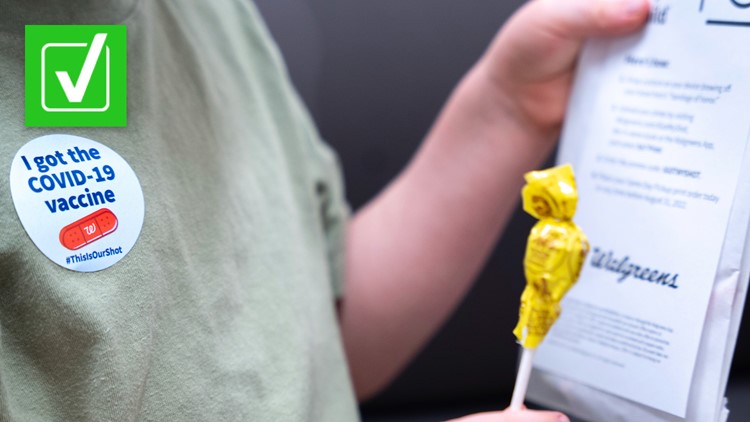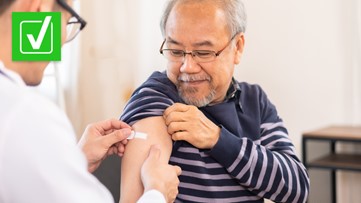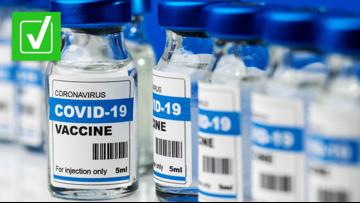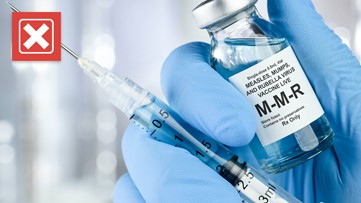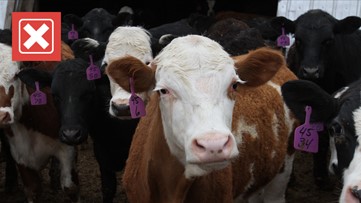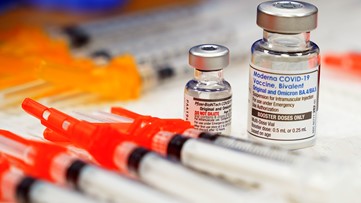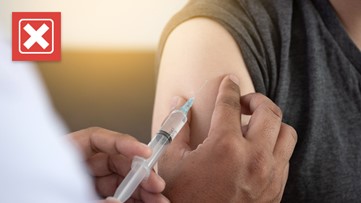The U.S. Food and Drug Administration gave emergency use authorization to the first COVID-19 vaccine for people ages 16 and older in December 2020.
Vaccine eligibility has since expanded to other age groups, including some young children, but those under 5 years old haven’t been able to get vaccinated until now. The conversation on social media has recently turned to vaccine availability for children as young as 6 months old.
THE QUESTION
Has the FDA authorized COVID-19 vaccines for children as young as 6 months old?
THE SOURCES
- U.S. Food and Drug Administration
- Centers for Disease Control and Prevention (CDC)
- Pfizer
- Moderna
- Leslie Sude, M.D., Yale Medicine pediatrician
THE ANSWER
Yes, the FDA has authorized COVID-19 vaccines for children as young as 6 months old.
WHAT WE FOUND
On Friday, June 17, the FDA expanded emergency use authorization for the Pfizer and Moderna COVID-19 vaccines to include children 6 months and older.
Centers for Disease Control and Prevention (CDC) Director Rochelle Walensky, M.D., later endorsed the recommendation that all children 6 months to 5 years of age receive a COVID-19 vaccine, expanding eligibility to nearly 20 million additional children.
Pfizer’s vaccine had previously been authorized for people ages 5 and older, while Moderna’s vaccine was authorized for use in adults 18 and older.
“As we have seen with older age groups, we expect that the vaccines for younger children will provide protection from the most severe outcomes of COVID-19, such as hospitalization and death,” FDA Commissioner Robert M. Califf, M.D., said in a statement.
The FDA says the immune response of children to the vaccines was “comparable to the immune response of adults.”
The Pfizer vaccine for children ages 6 months to 4 years old is administered as a primary series of three doses. The initial two doses are given three weeks apart, followed by a third dose at least eight weeks after the second, according to the FDA.
In a clinical trial that included 4,526 children 6 months through 4 years of age, children received the third dose of the COVID-19 vaccine at least two months after the second when the omicron variant was predominant. The vaccine elicited a “strong immune response” following a third dose in this age group, Pfizer said.
Moderna’s vaccine is given as a primary series of two doses, one month apart, to people ages 6 months to 17 years old. Some immunocompromised people in this age group can also get a third primary series dose at least one month after the second, the FDA says.
The CDC says everyone ages 5 years and older should get one COVID-19 vaccine booster at least five months after completing their primary series. Booster shots aren’t currently authorized for children under 5 years old.
White House Coronavirus Response Coordinator Ashish Jha, M.D., said children under 5 years old can start getting shots as early as June 21. The federal government’s online vaccine locator can show parents where shots are available for their children.
Are the vaccine doses the same for young children as they are for adults?
The vaccine doses for children are not the same as those for adults.
Each of the three doses of Pfizer’s vaccine given to children under 5 are three micrograms, compared to 10-microgram doses for children ages 5 to 11 and 30-microgram doses or people ages 12 and older.
For the Moderna vaccine, children under 6 receive two 25-microgram doses, and children ages 6 to 12 receive two 50-microgram doses. Those ages 12 and up receive two 100-microgram doses in their primary vaccine series.
Should my child get vaccinated if they already had COVID-19?
A CDC study found that 75% of children already had COVID-19 by the end of February 2022. But the public health agency and other medical experts say children should still get vaccinated even if they have already had the virus.
“It’s the same answer as it is for adults,” Leslie Sude, M.D., a Yale Medicine pediatrician, said. “The immunity we get from natural infection has some benefits vaccine immunity can’t provide, and the converse is also true. There is evidence that hybrid immunity, or natural infection combined with vaccination, may be the best type of immunity. But measuring hybrid immunity is complex and there is still much not known — for example, how long hybrid immunity lasts.”
The CDC says people should wait to get vaccinated until they have recovered from COVID-19 and completed their isolation period. People should isolate for five days if they do not have symptoms or their symptoms are resolving.
People who have recently had COVID-19 may consider delaying their next vaccine by 3 months from when their symptoms began, or when they first received a positive test for those who did not have symptoms, according to the public health agency.
“Reinfection is less likely in the weeks to months after infection. However, certain factors, such as personal risk of severe disease, local COVID-19 community level, and the most common COVID-19 variant currently causing illness, could be reasons to get a vaccine sooner rather than later,” the CDC says.

